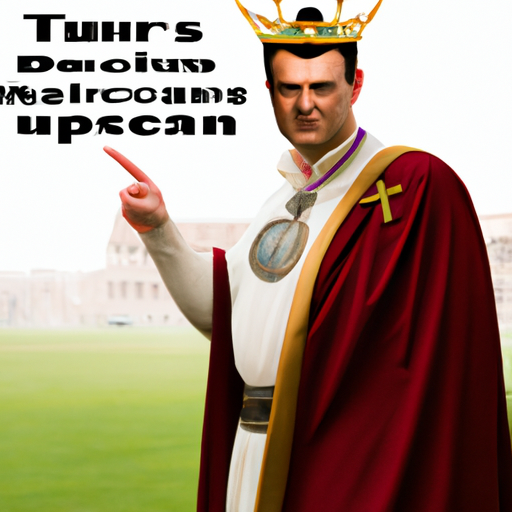“Caesar Augustus crowned first Emperor of the Roman Empire – Definitely a big achievement for a mediocre ruler!”
Rome, Italy – January 16, 27 B.C. – Amid pomp and show, the Senate of Rome officially declared Caesar Augustus the first Emperor of the Roman Empire. History buffs and fans of authoritarian reign everywhere rejoiced at the news.
Augustus, originally known as Gaius Octavius, became the de facto ruler of Rome after defeating Mark Antony in the Battle of Actium. He then proceeded to eliminate all his rivals, either through death or exile, and consolidated his power without any objection from the spineless Senate.
Augustus, while celebrated for being the first Roman Emperor, was a mediocre ruler at best. Despite having a vast empire at his disposal, he failed to conquer any new territories or expand the borders of the Roman Empire. Instead, he spent most of his reign traveling and trying to find new ways to tax his citizens.
“I am thrilled to be declared the first Emperor of Rome,” said Augustus in a statement read by his sycophantic advisor, “I promise to continue my reign of mediocrity and irrelevance until my eventual death.”
The news of Caesar Augustus being crowned the first Emperor of Rome was met with mixed reactions. Some citizens celebrated the new era of dictatorship and endless taxation. Others, however, feared the implications of having an all-powerful leader who didn’t seem to be particularly good at anything.
“Augustus being crowned Emperor is the best news I’ve heard all week,” said Roman citizen Marcus Aurelius, “I can’t wait to pay even more taxes and have even fewer rights as a citizen.”
Despite Augustus’ underwhelming reign, some historians credit him for laying the groundwork for the Roman Empire’s success in the centuries to come. They argue that his initiatives in public works and military reform helped create stability and prosperity in Rome.
“I mean, sure, Augustus wasn’t the greatest ruler in history,” said ancient historian Plutarch, “but at least he didn’t start any major wars and kept things… stable.”
Augustus, who died in 14 A.D. after ruling for over 40 years, remains a controversial figure in history. Some view him as a visionary leader who ushered in a new era of stability, while others see him as a power-hungry autocrat who cared more about taxing his citizens than anything else.
Regardless of one’s views on Augustus’ reign, there’s no denying the significance of him being crowned the first Emperor of Rome. It marked the beginning of a new era of authoritarianism and taxation that would shape the future of the Roman Empire and its citizens for centuries to come.


